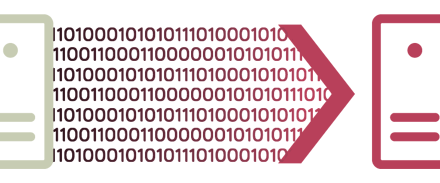I am a huge fan of applications and programs that can be self-hosted, meaning they don’t require any outside service or provider to work—an analog analogue would be owning DVDs versus borrowing them from the library*, or having your own security system instead of using a service like Ring.
There are many reasons to self-host software, chief among them being control of information flow. If you store photos and documents at Google, they will use your content to train AI, target you with specific ads, and ultimately they could close or lock your account—or the entire service—without warning, leaving you with none of your data, and no recourse.
None of these issues, and the myriad of other privacy-depriving uses cloud-hosting providers bury in their terms of service, are endemic to services that someone has on their own computer at home. It is often more complex and more complicated both to set up accessible home services, but there are large online communities dedicated to self-hosting everything from websites, mail servers, picture sharing, chat applications, and many, many more.
There are quite a few self-hosted services or applications that I have found absolutely stunning, remarkable, or profoundly well-made that I simply don’t (currently) have a need for, and very much wish I did.
Here’s a sampling of software, free from the constraints and controls of paying a cloud vendor (remember: if you don’t have to pay for a service a large company provides, you yourself are the product they’re selling to someone else), and how they can be used.
Non-profit and community organizations may also find a lot of value with these applications, and the many other like alternatives to traditional, cloud-hosted software suites.
- Zulip – at first glance it may look like a simple alternative to Microsoft Teams or Slack, but Zulip is a threaded chat application, meaning that individual topics have their own sub-discussions within a given room or conversation. No more scrolling up 400 lines to find the one message you need! A great use-case would be for distributed/remote internal teams to keep in touch, particularly about multiple or different projects.
- Foundry – disliking the pay-for-content model of online game websites like roll20, the small team behind Foundry has made an incredible self-hosted virtual tabletop software suite that anyone can host and share themselves. The contributor community is huge and it is remarkably feature-full. Online gaming and campaign management has never been easier.
- Monica – while it may look like some sort of new social media network, Monica is actually very smooth database for you to track your own social connections. What people like, the last time you called them, what gifts they’ve expressed interest in, et cetera. You can even set reminders which sync to your calendar, so you never fall out of touch. This software is very valuable for anyone needing to keep track of a large web of relationships, no matter how interconnected.
- Netdata – imagine if your server(s) had a clean dashboard from which you could see CPU usage, disk space, RAM load, network traffic, and so much more. Netdata is a straightforward to set up monitoring dashboard that lets you know what’s going on right now with your machines.
- Snipe IT – an asset management system designed to help you keep track of anything that needs tracking. Designed with IT firms in mind to help remember where computers and other equipment is deployed, it’s open and modular enough to be applicable for a great many use cases.
- LibreOffice Online – I am a huge fan of LibreOffice, the most effective Microsoft Office alternative I’ve ever seen. Office Online takes LibreOffice to the next level and provides a web-based interface for your documents, making it a replacement for Google Apps (Docs, Sheets, et cetera). With great collaboration and change-tracking tools, this is a stellar inclusion into anyone’s self-hosting setup.
- Bookstack – It is so, so hard to consolidate documentation these days. Whether it’s for a project with multiple stages, cross-team information exchange, or tracking multiple plot-lines in a role-playing campaign, Bookstack is a great, easy-to-use data repository and knowledge base, collecting everything into books, chapters, and pages. With multi-author collaboration support, this one is definite must-have when it comes to team cohesion.
And there we have it—six wonderful pieces of software you can run at home or at the office (please get your IT department’s permission first) that I would love to make use of, but simply don’t currently have the need for. If any of these applications sound interesting to you, I’m more than happy to help you explore whether self-hosting is appropriate for your needs!
Soon I’ll be writing a rundown of the self-hosting software solutions I do need, and how they help me in my everyday life. Keep an eye out for that one, coming later this week!
* Yes, referring to Digital Video Discs as “analog” was entirely deliberate.
Header graphic from Pixabay.com, a royalty-free image site













